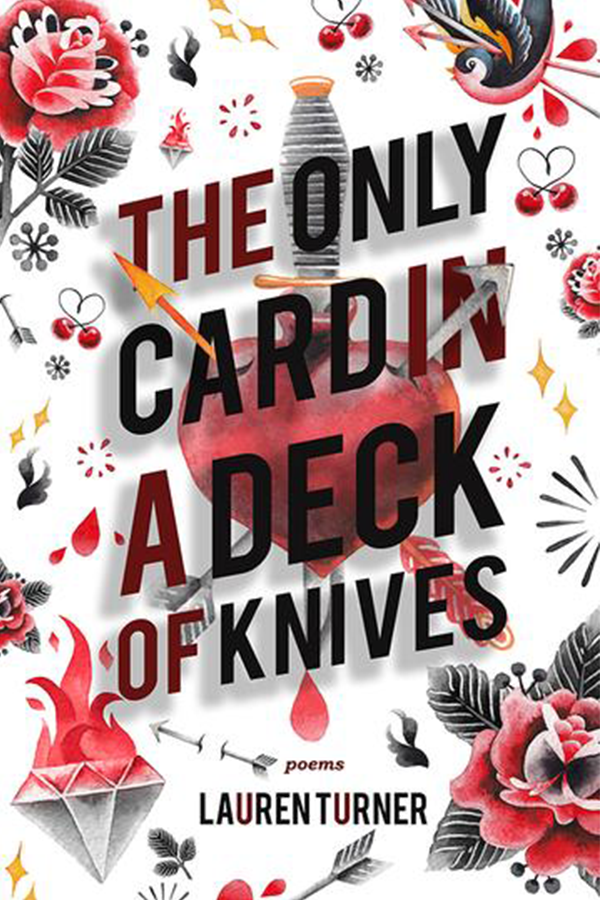
Drawing on some of the tenets of Johanna Hedva’s sick woman theory but performing deft dances of her own, Turner re-appropriates romanticized myths of violence—especially the archetype of the demon lover—to crush them and sift through the shards. The book offers a number of long poems which are buoyed by Turner’s skill in attenuating a narrative into ironic aphorisms and lived contradictions. This deck of knives offers an extended look at the chaos and re-ordered conditions of living in a chronically ill body. It’s never easy to get the body onto a page, something Turner acknowledges, but the urgency of the text derives from her poetic work to capture bodily consciousness and identify the extra (and often gendered) labour of occupying a body that does not do everything you want/need it to do.
In “Blitzed Out,” for example, Turner notes that “blame is so reductionist” as she searches for other ways to gloss the trope—and the reality—of an unfaithful male lover, including the caveat that “no one appreciates this re-telling.” Her alignment of a toxic relationship with a mostly-female-contracted illness (lymphangioleiomyomatosis, aka LAM) makes hay out of the metaphor of invasion and not being able to breathe. To read Turner’s take on mansplaining about the force of demanding patient behaviour is to laugh even as you choke. Another sequence, the chilling and vital “Quit Trying to Die,” notes that the disease’s blossoming flora on the lungs “sounds like a fairy tale to scare little girls” with tumours spread throughout the body like stars in the night sky.
Girding these sequences is the multi-page essay-poem “A Masculine Division,” cannily offered here as an appendix, even though it is neither the end of the book nor supplementary to it. (This is the kind of poetic lie I am very partial to.) Turner’s statement “Gendered violence draws years from me” will resonate for many readers. “Stop Bringing Me Here,” the last poem in the book, asks, “Did I err as a poet or as a woman?” and this question stopped me cold, though ruthlessly, the line continues “I wasn’t taught to respect either one.” The great and much-missed Irish feminist poet Eavan Boland wrote, “a wounded history, public or private, is always volatile,” and Boland, nobody’s fool, argues for the efficacy and bone-deep necessity for such volatility. I’m with Boland and with Turner: blame is reductionist, but our errors make meaning of our histories.
Tanis MacDonald’s fourth book of poetry, Mobile, was longlisted for the 2020 Toronto Book Award, and her personal essay, “Mondegreen Girls,” won the 2021 Open Season Award in The Malahat Review. Recent work has appeared in Grain, The Phare, and Atlantis. Tanis’s next book, Straggle: Adventures in Walking while Female, will come out with Wolsak & Wynn in spring 2022. She lives in Waterloo, Ontario.
ARC HITS THE HEART HARD.

